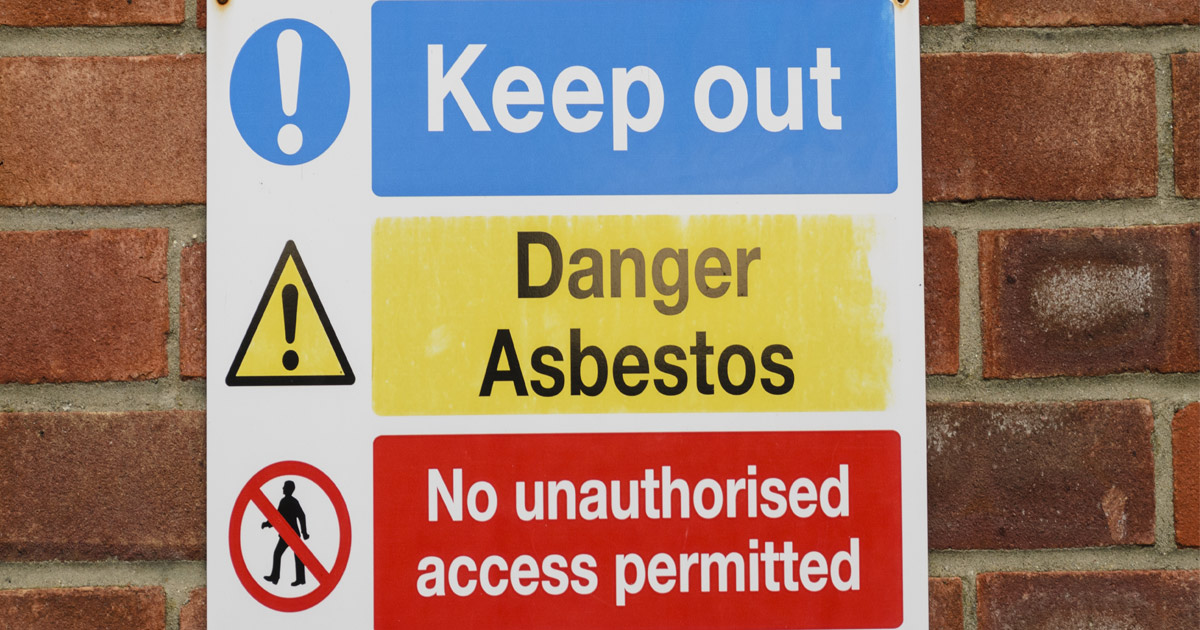
In what could be a landmark move, the Environmental Protection Agency (EPA) has proposed banning the importation and use of chrysotile asbestos. Announced on April 5, 2022, the ban would have sweeping ramifications across several industries. It would also send a clear message that the United States is ready to take its most decisive stand on asbestos.
In 2016, the Toxic Substances Control Act underwent an amendment called the Frank R. Lautenberg Chemical Safety for the 21st Century Act. The latest EPA proposed ban is essentially a springboard from the revision, naming chrysotile asbestos to be eliminated for manufacturing, distribution, and other purposes.
The EPA spokesperson has spoken about the proposed ban since it was announced. They believe that the public’s interest and health will be served by removing access to chrysotile asbestos in all commercial applications.
Many people who are not actively involved in asbestos-related jobs may wonder why the EPA is banning a specific type of asbestos rather than all asbestos. Chrysotile asbestos, sometimes referred to as white asbestos, is the only asbestos actively imported and used in the United States.
In December 2020, the EPA released its findings in the Final Risk Evaluation for Asbestos, Part 1: Chrysotile Asbestos. The paper concluded that chrysotile asbestos posed a severe health hazard. Accordingly, the EPA chose to target the ban on chrysotile asbestos.
Asbestos is a naturally occurring mineral that can be found in the earth. It poses no significant threats to humans in its raw state. However, in the early 20th century, it was discovered that its heat-resistant properties could be tapped to make various products when mined.
By the 1970s, asbestos was being manufactured to create everything from home and office insulation to tile flooring. Traces of asbestos have been found in consumer products sold before the 1970s and 1980s.
The most significant risk from asbestos comes when its fibers are released into the environment. These fibers are invisible and can work their way into the lungs and nearby soft tissues through the airways. Once there, asbestos fibers can never be removed. Over time, they can cause severe and fatal health conditions like mesothelioma. Many people diagnosed with mesothelioma worked in careers that exposed them to asbestos, such as construction or shipyard jobs.
Two of the major industries that would feel the effects of banning chrysotile asbestos would be the automobile industry and the chlorine industries. Automobile manufacturers use chrysotile asbestos to create brakes, lining, and other parts that would benefit from being heat resistant. Chlorine companies depend upon chrysotile asbestos to make diaphragms. Those diaphragms are then used to produce chlorine, used for water treatment purposes around the nation.
Lobbying groups representing the interests of these industries are actively trying to make sure the ban does not become legally binding. Lobbyists claim that the chlorine industry will be especially hit and that the ban will hurt the country’s available supply of necessary chlorine.
The EPA’s proposed 2022 ban on importing and using chrysotile asbestos would not immediately affect all industries. Manufacturers making brakes and other vehicle parts would have 180 days to comply with the ban. Businesses focused on the chlorine industry would have two years to move away from chrysotile asbestos.
All consumers have up to 60 days to comment on the EPA regarding the proposed ban. At that point, the ban will undergo a ruling. It is unclear if the proposed asbestos ban will pass. However, many advocates feel that the ban has the backing of key players and solid legal grounds to stand.
If the proposed chrysotile asbestos ban passes, it will be another watershed win for consumers, government officials, and legal professionals eager to protect the public from asbestos exposure. Yet, this ban will not get rid of all asbestos.
Many items and properties built before the 1980s contain asbestos. As long as those materials remain undisturbed, they will not be a threat. The problem comes when the materials become airborne, as in the case of a remodeling project, fire, or another event. As soon as asbestos fibers are airborne, they can be inhaled. Without proper protective gear, people may inhale the fibers.
If you believe you may have been exposed to asbestos, you should contact a medical professional. Early diagnosis of health problems including mesothelioma, gastrointestinal cancers, scarring, or asbestosis is key to getting appropriate treatment.
Once diagnosed with any condition associated with asbestos, you should feel free to contact a lawyer to talk about recovering damages. A lawyer can help you figure out how to proceed.
Be careful when conducting home renovations or working on old car parts. Even with the EPA’s existing and proposed bans, the public is still at risk of asbestos exposure.
If you have been diagnosed with mesothelioma and want to explore your legal options, speak with one of our Philadelphia mesothelioma lawyers at Brookman, Rosenberg, Brown & Sandler. Call us at 215-569-4000 or complete our online form to schedule a free consultation. Located in Philadelphia, we serve clients throughout New Jersey and Pennsylvania, including Delaware County, Chester County, and Philadelphia County.